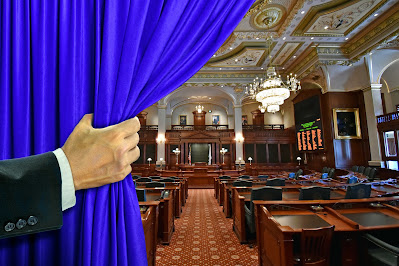The actions of the Illinois state legislature affect many facets of your life from the taxes you pay, the highways you drive, the schools that educate your children to the programs that help the poor, seniors, veterans and the disabled. The list is endless.
While the legislative process is clearly spelled out in the Illinois Constitution, the human component of legislating is always in flux, and always in play. State legislators come from all walks of life and bring with them their own priorities, agendas, alliances, personalities and biases. This group of independent-minded individuals may or may not vote for a particular measure on any given day. Moreover, like in any setting, group dynamics often take over. A bill that garners enough votes to pass on one day, may fail to pass on another day solely based on the mood of the room at that moment.
Legislative members, State Senators and State Representatives are elected to represent their constituencies. They fulfill this obligation through the legislation they introduce and with their votes. While legislative members appear equal on the surface, each being able to cast only one vote when a piece of legislation is up in a chamber or when voting for their leaders, some members are more equal than others. Those in the majority in each caucus have exponentially more power and that power increases if there is a supermajority.
There are times when certain bills require a three-fifths (supermajority) vote to pass out of the chamber or to override a veto by the Governor. The supermajority threshold was designed to maintain a balance of power and hold the majority accountable. Ultimately it requires bipartisan cooperation and allows the minority caucus to influence the outcome. It works well enough unless one caucus has the required number of members to meet the supermajority threshold, as is the case currently in both the House of Representatives and the Senate. Democrats hold the supermajority status in both chambers as well as the Governor’s office – providing less incentive for bipartisanship and less accountability.
The old days of the four legislative leaders and the Governor hammering out an agreement are gone for now.
Read more here: https://www.thecaucusblog.com/2024/12/pulling-back-curtain-human-equation.html
